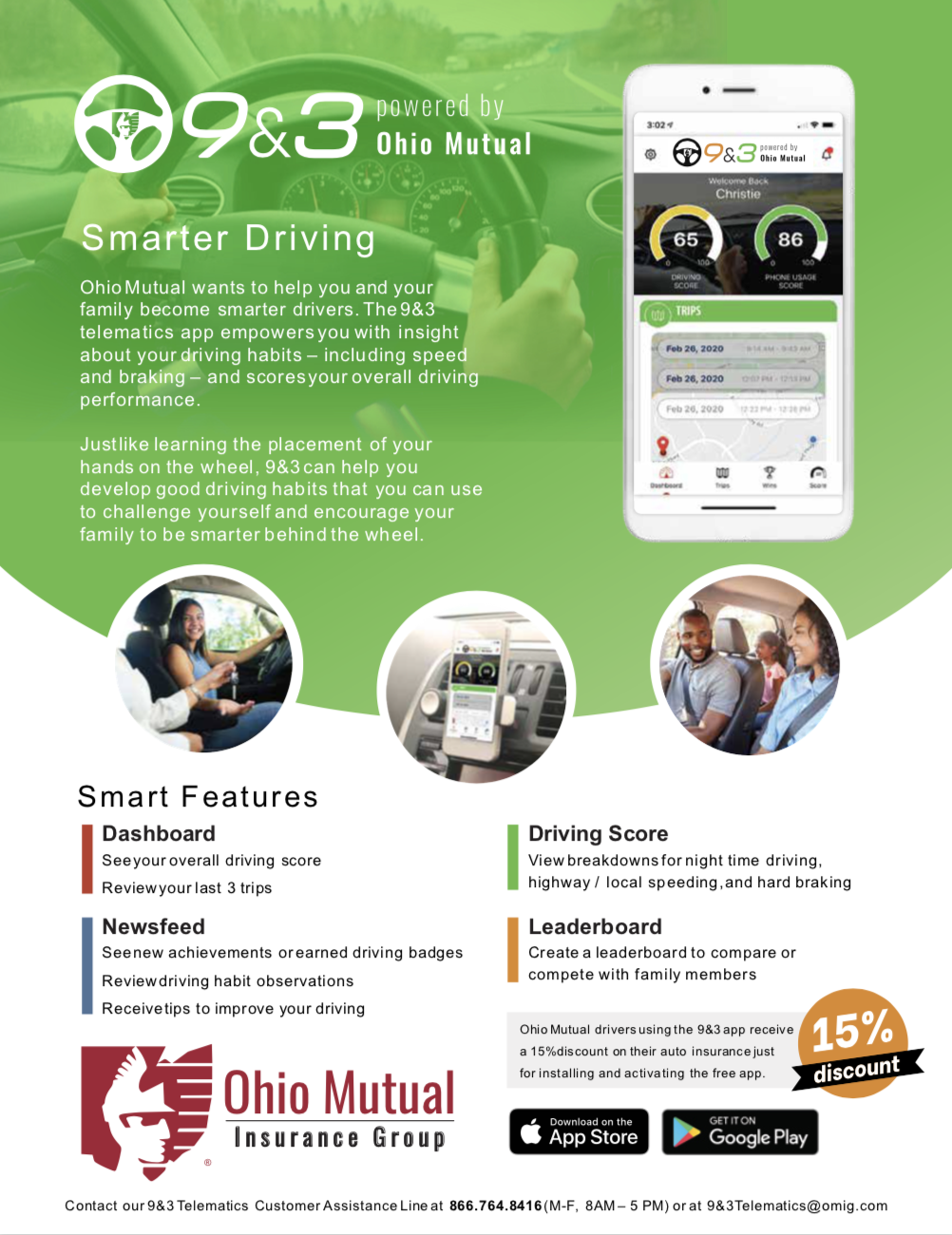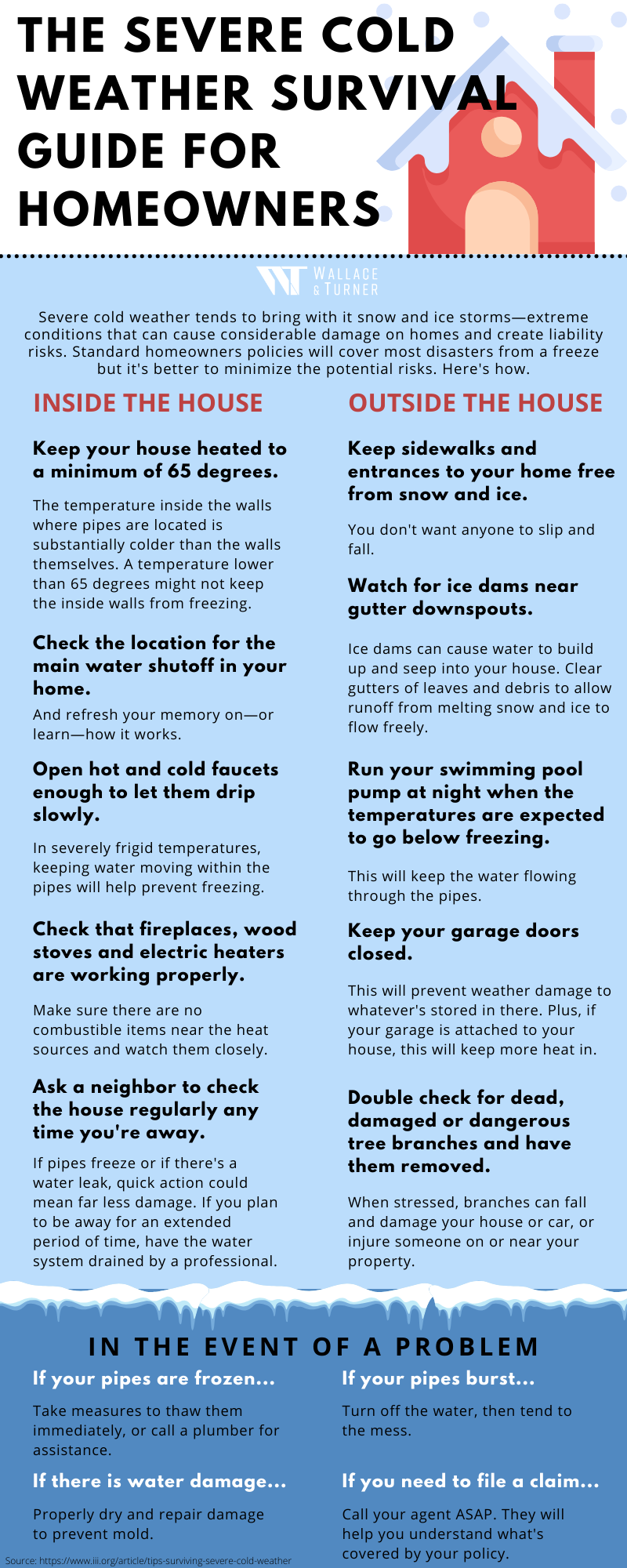Insurance is often figuratively compared to an umbrella. If liability and risk are the rain, your insurance policy is the umbrella because it keeps you dry. But within insurance coverage, there is also a policy specifically called Umbrella Insurance. So what does this coverage do that’s different from a standard policy? Umbrella insurance in Ohio is a way to make your umbrella of protection bigger.
In other words, an umbrella insurance policy extends your coverage for liability. While many insurance policies already have liability coverage, they often don’t have enough. Umbrella insurance is a way to protect against that problem.
Is this type of extended coverage right for you? The team at Wallace & Turner is here to guide you through the decision by identifying which assets an umbrella policy would help cover and to determine how much coverage you should have. Our independent insurance agents are available to answer any questions you have Ohio umbrella insurance. Read on to learn more, or reach out to our team to talk about your policy options.
What is Umbrella Insurance?
Imagine you’re driving around Springfield, Ohio, when you get a distracting text message. You look down to see what it says, and in an instant, you slam into the rear of the car stopped at an intersection in front of you. The driver is hurt and his car is totaled. A few weeks later, you get notice that he’s suing you for $600,000.
Your standard car insurance may carry a liability limit of $300,000. If that’s the case, you would have to pay the remaining $300,000 out of your own pocket — that is, unless you had umbrella insurance.
Umbrella insurance is an additional policy designed to cover the difference between the liability limits on your existing policies and the amount you’re sued for. It’s also designed to cover related costs, such as the cost of a defense lawyer.
Types of Umbrella Insurance
Umbrella insurance isn’t just for car accidents, although this is a common use for the coverage. It’s actually designed to cover you against a wide range of liability. Here are some examples of the types of liability Ohio umbrella insurance can cover:
Umbrella insurance can cover many types of incidents that standard insurance policies won’t.
How it Works
Umbrella insurance policies usually won’t kick in until the limits of your other applicable policies are exhausted. For example, if you have a $250,000 liability limit on your homeowners policy and you are sued for $300,000 due to a slip-and-fall accident at your home, your umbrella policy would pay the $50,000 difference.
Umbrella insurance can cover your personal liability or liability related to your business. Keep in mind, however, that these types of policies are usually separated. A commercial umbrella insurance policy likely won’t cover you for an accident in your home, and a personal umbrella insurance policy likely won’t cover you for an accident at your place of business.
Things Umbrella Insurance Won’t Cover
Umbrella insurance is a particularly handy type of coverage if you have valuable assets or face a lot of potential liability, but it isn’t a catch-all. This type of insurance won’t cover everything, which is why it’s important to work with an insurance professional to make sure you’re covered in every way you need to be.
Here are some examples of things umbrella insurance policies typically won’t cover:
Injuries that happen to you
Damage to your property
Liability from contract violations
Any criminal or intentional acts you commit
Third-party liability involving your business
Who Needs Umbrella Insurance in Ohio?
Most people could benefit from having extra coverage, but umbrella insurance is only needed if you face certain types of liability. The following are some examples of when you may need this type of coverage:
You own property.
You are a landlord.
You are a public figure.
You coach children’s sports.
A new driver is part of your household.
You own a gun, dog, trampoline, pool, hot tub or other items that can lead to injuries.
You have a lot of guests in your home.
All of the above scenarios can mean you are particularly vulnerable to liability. And an Ohio umbrella insurance policy is an effective way to protect yourself.
Why Get Umbrella Insurance?
The primary benefit of umbrella insurance is relatively straightforward: You are better protected from being sued. But these benefits actually go deeper than that. For example, the coverage amounts for umbrella insurance in Ohio typically start at $1 million, and that will usually cost you between $150 and $300 per year in premiums. And if you need more than $1 million in coverage, you can usually add on another million for around $75 each year.
That’s pretty affordable, especially when you consider that the average car accident settlement is more than $24,000, with settlements on the higher end easily topping hundreds of thousands of dollars.
Additionally, if you’re a world traveler, umbrella insurance may be the only type of liability coverage that travels with you. Typically, your Ohio umbrella policy will cover you for liability that arises anywhere in the world.
Find the Best Ohio Umbrella Insurance Policy for Your Needs
Put simply, umbrella insurance can be a lifesaver. No one wants to be sued, but if you are a member of society, you are always at risk. It’s just like rain — any time you go out, you run the risk of getting wet. That’s why you shouldn’t leave the house without your umbrella.
Umbrella insurance can offer the kind of broad liability protection you need, no matter the circumstances you face or the value of the assets you own. There are plenty of policies to choose from, and figuring out which one is right for you can be a challenge. We’re here to help.
The Wallace & Turner team can connect you with the perfect Ohio umbrella insurance policy to protect you, your family and your wallet. Ready to make sure you’re fully covered? Then reach out to our team. Give us a call at 937-324-8492 or contact us online today.

















